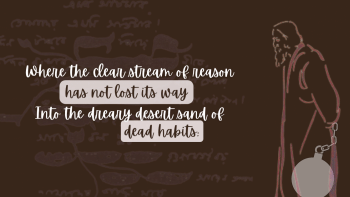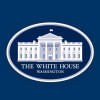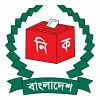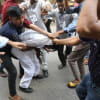Attack on Hero Alom: When dissent begets a beating

I am halfway through my 20s and I haven't voted yet. Don't get me wrong – it wasn't because I didn't want to, but because I never saw the point. Beside the strenuous task of getting a National ID card, no one ever told me why I should or why it matters. Receiving the NID card was simply a token of the fact that I was recognised as an adult under the constitution.
In essence, as one of the representatives of the "future" of this country, I am still clueless as to what it means to be a voting citizen in Bangladesh, and how that contributes to upholding "democracy."
If you ask anyone in my generation which political party they support or what political leniency they might have, most would not have an answer. That's simply because no one has ever asked them what they want or how they want to see their future shaped in this country.
My generation has grown up seeing two political parties in constant dissent, and known politics to be violent – marred with bloodshed and cocktail bombs. This is also the reason why my generation would rather chase after a saturated job market than dream of becoming politicians.
In our perspective, politics is a tired tale – a tale where everyone knows the ending.
However, this tale had a refreshing (and entertaining) twist when Hero Alom, the man behind the curtains of TikTok, famed for his music videos and his whimsical content, came out of the shadows and decided to contest the Dhaka-17 by-polls against Awami League candidate Mohammad Ali Arafat.
When the news broke out that this man was contesting the by-polls, however, no one really took him seriously. What political value could a man who makes poorly produced auto-tuned songs add to the landscape? What does he know about politics?
While that is a fair assessment to make, Alom's brave conquest to compete represented two things: that democracy is being exercised, and that even a man from the grassroots can dare to dream of participating in politics. Can any one of us remember the last time such an incident took place?
Even though it's hard to imagine Alom on the political throne, it's also difficult not to appreciate the man's grit. He checked off the list for any political campaigner – he visited his demographic in movie theatres, slums and even did live campaigns on social media platforms. He took his role seriously, even if no one else did.
And at every stage, his efforts were reciprocated with mockery, threats and violence. But he still went on… until yesterday, when Alom was physically assaulted while leaving Banani Bidyaniketan School polling station, allegedly by Awami League men.
While some may still say that Alom wouldn't have won the election anyway or he deserved to be "shown his place," I can't help but wonder what would happen if Alom had indeed won the election. Would it mean more people from the grassroots would be encouraged to participate in politics, or at the very least organise? Would it mean fresh perspectives would be added to the table, where the urban poor are often left out? Would it propel politicians to be at the edge of the seats they have comfortably sat on for years and revise their agendas?
Live footage showed Alom barely escaping a brutal beating, protected by a few of his supporters. He was hospitalised briefly for his injuries; later at a press conference in the evening, Alom declared that he would never again take part in any elections under the ruling party.
Alom believes that this attack was premeditated since right after leaving the polling station, the perpetrators had jumped on him. Seeing the live footage, his claims seem likely.
So now we arrive at the burning question: is this the response an election candidate must expect if they ever "dare" to contest the elections under an independent mark or a different political mandate? If so, will we ever get the chance to witness new faces in the realm of Bangladeshi politics?
The way the assault took place, it almost seemed like the perpetrators were trying to send a message – a message that said, "You wanted to participate in politics? Here, have a taste."
Anyone who watched the video would agree that Alom didn't deserve it. The comment sections poured in with people's disbelief and their lack of trust in the country's democratic practice, cementing their apathy to vote.
While some may still say that Alom wouldn't have won the election anyway or he deserved to be "shown his place," I can't help but wonder what would happen if Alom had indeed won the election. Would it mean more people from the grassroots would be encouraged to participate in politics, or at the very least organise? Would it mean fresh perspectives would be added to the table, where the urban poor are often left out? Would it propel politicians to be at the edge of the seats they have comfortably sat on for years and revise their agendas?
I guess we'll never know now.
Personally for me, I will always remember the Dhaka-17 by-polls as the election where a man from the grassroots, fuelled by sheer belief, went running towards his dream and was shot down with assault. The election where all of us were reminded of the repercussions of dissent. The election where, for the first time, we all agreed Hero Alom was indeed worthy of his self-proclaimed title.
Nazifa Raidah is a journalist at The Daily Star.

 For all latest news, follow The Daily Star's Google News channel.
For all latest news, follow The Daily Star's Google News channel. 











Comments